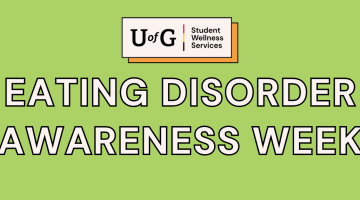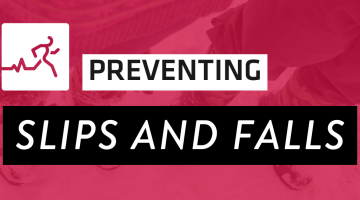Strategies For Coping In Times of Political Uncertainty - keep.meSAFE
A message from the University of Guelph keep.meSAFE committee:
We are saddened and devastated by the military invasion in Ukraine. War, violence, and political uncertainty can cause stress, anxiety, and other responses, even if someone is not directly affected by the situation. Your keep.meSAFE program would like to remind you of their support during this difficult time as you try to understand the impact of the situation and process this event.
Strategies for coping in times of political uncertainty:
Major political change brings with it uncertainty about the present and the future. Here is some information on ways to cope with feelings of worry and stress you may be experiencing during times of political uncertainty or unrest.
In the wake of a major political change, you may have fears or worries about national or international security which can leave you feeling anxious or worried about things over which we have little control. Here are some ways to effectively manage these feelings:
- Stay informed. Rely on credible and trustworthy sources of information for news updates, guidance, and advice.
- Avoid the rumour mill
- Take a break from social media. During times of political, social, and cultural change, social media is full of people posting opinions, articles, conspiracies, petitions, disagreements, and misinformation. Avoiding social media gives you space to process your own thoughts and feelings without being influenced by others.
- Be aware that there may be public demonstrations. These can escalate quickly, so stay away. It is also a good idea to enter emergency numbers on your phone in case you do get caught up in a situation where need to call for help fast.
- Strive for unity, compassion, and kindness. Unfortunately, during times of uncertainty, reports of hate crimes and verbal abuse are not uncommon. The more compassion and understanding you are able to exhibit toward others—friends and strangers alike—the less tension-filled the world will be.
- Do the things you would normally do during difficult times to manage feelings of stress and anxiety. Make a point of eating well-balanced meals. Limit or avoid alcohol and caffeine. Drink plenty of water—stress can sometimes lead to dehydration. Make regular physical activity a priority. Regular exercise is one of the best ways to reduce stress and improve your mood.
- Take breaks. Go for a walk. Get some fresh air. Practice deep breathing or meditation.
- Connect with friends and family. You'll probably find that other people are just as worried as you are about the same or similar things. Talking things over helps relieve stress.
- Reduce other stress in your life. Try to avoid making big life changes during times of uncertainty.
Remember that the immediate and confidential keep.meSAFE services are accessible 24/7/365 by calling 1-844-451-9700 (outside of Canada and the USA 1-416-380-6578) or downloading the My SSP app.
Download the My SSP App from either the Apple App Store or Google Play
The app also features additional information and tips on coping with stressful events.
Crisis Support Line now open:
While the Student Support Program (My SSP) helpline is open for eligible students (University of Guelph International Students and ELP Students), LifeWorks has also opened a Crisis Support Line for anyone in the community in need of emotional support in relation to these events. The Crisis Support Line is open 24/7 and can be reached in the United States at 1-877-757-7587, Canada at 1-844-751-2133, the United Kingdom at 0800 088 5339 and Ireland at 1800 817 227.
By calling, individuals will receive professional emotional support and/or referral to community resources. This resource is available to anyone and everyone, client or not.
For more information on the University of Guelph keep.meSAFE Mental Wellness Student Support Program, visit wellness.uoguelph.ca/keep.meSAFE



